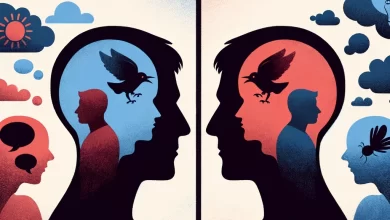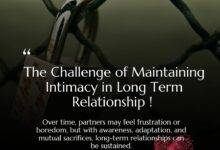Navigating Love: Supportive Tips for Breakup Recovery

Did you know that approximately 40-50% of married couples in the United States end up divorcing? Breakups are not only prevalent in marriages but also in various other romantic relationships. The aftermath of a breakup can be emotionally challenging, leaving individuals feeling lost and unsure of how to recover. However, with the right support and strategies, it is possible to heal from a breakup and move forward towards a brighter future.
Key Takeaways:
- Breakups are common, affecting many marriages and relationships.
- The emotional impact of a breakup can be difficult to navigate.
- Therapists play a crucial role in providing support and guidance through the healing process.
- Coping strategies such as self-care and seeking support can aid in breakup recovery.
- A breakup provides an opportunity for self-reflection and growth.
Understanding the Emotional Impact of a Breakup
Breakups can be incredibly difficult, leaving us feeling raw and heartbroken. The emotional impact of a breakup is profound, as it can evoke feelings of sadness, anger, confusion, and resentment. It’s essential to recognize and process these emotions, rather than suppressing them, in order to heal and move forward.
Grief is a natural response to the loss of a relationship, and it’s important to understand that healing from a breakup involves going through stages of grief. Initially, you may experience shock and denial, followed by intense feelings of anger and sadness. Eventually, with time and self-reflection, acceptance and healing can begin.
The emotional impact of a breakup can feel even more overwhelming in certain circumstances. For instance, if you weren’t the one who initiated the breakup, it can be particularly challenging to come to terms with the end of the relationship. Additionally, not receiving the closure you desire can prolong the healing process and intensify the emotional pain.
Processing Heartbreak and Grief
It’s crucial to give yourself permission to grieve and to process the heartbreak in a healthy way. Allow yourself to feel the pain and sadness, but also remind yourself that healing is possible. Understanding that it’s natural to experience a wide range of emotions during this time can help validate your feelings and provide some comfort.
“Heartbreak can be a transformative experience when we allow ourselves to go through the process of healing.” – Jane Smith
Seeking support from friends, family, or a therapist can be immensely helpful in navigating the emotional impact of a breakup. Surrounding yourself with a supportive network can provide comfort, reassurance, and a safe space to express your emotions. Talking about your feelings and sharing your story can help with gaining perspective and finding solace.
As you embark on your healing journey, remember that healing is not linear. There will be good days and bad days, but with time, self-care, and support, the pain will begin to subside. By allowing yourself to process the heartbreak and work through the stages of grief, you can emerge stronger and more resilient, ready to embrace new beginnings.
The Role of a Therapist in Navigating a Breakup
Breakups can be emotionally challenging, and many individuals seek breakup advice and breakup support to help them navigate this difficult time. One valuable resource for support during a breakup is a therapist.
Relationship therapists, like Dr. Jennifer Davis, possess unique insights and skills that can assist individuals in coping with heartbreak and moving forward. As professionals, therapists understand the complexities and emotional turmoil associated with breakups. They have studied the intricacies of relationships and are trained to provide guidance and support.
However, it is essential to acknowledge that therapists are not immune to experiencing their own breakups. Despite their professional expertise, therapists face similar challenges when navigating the end of a relationship. This personal experience allows them to empathize with their clients’ struggles, creating a safe and supportive space for healing and growth.
While therapists can draw upon their personal experiences, they must also maintain objectivity to provide breakup advice and support from a professional standpoint. Through their training and expertise, therapists can offer a therapist’s perspective that combines personal empathy with objective guidance.
The Therapist-Client Relationship: A Source of Healing
The therapist-client relationship plays a crucial role in breakup recovery. With their knowledge and understanding, therapists provide practical strategies and coping mechanisms tailored to each individual’s unique circumstances. They create a judgment-free space where clients can express their emotions openly, offering a sense of relief and validation.
“Therapists are trained to create a safe and supportive environment where clients can explore their feelings and regain a sense of control and self-worth,” says Dr. Davis.
Therapists guide their clients through the stages of breakup recovery, helping them process their emotions and work towards acceptance. They assist individuals in developing a deeper understanding of themselves, their relationship patterns, and any underlying issues that may have contributed to the breakup. By fostering self-reflection and growth, therapists empower their clients to make healthier choices in future relationships.
It is important to remember that seeking breakup advice and support from a therapist does not indicate weakness, but rather a proactive step towards healing and moving forward. Therapists offer guidance, compassion, and a therapist’s perspective that can be immensely helpful in navigating the challenges of a breakup.
| Benefits of Seeking Breakup Support from a Therapist | Breakup Advice from Friends and Family |
|---|---|
| Professional expertise and training | May be biased or lack professional knowledge |
| Objective guidance | Filtering advice through personal experiences and perspectives |
| Safe and supportive space for expressing emotions | May offer well-intentioned, but potentially unhelpful, advice |
| Assistance in developing coping strategies | May lack knowledge of effective coping mechanisms |
| Opportunity for self-reflection and personal growth | May have limited understanding of underlying issues |
When seeking breakup support, it is crucial to choose a therapist who specializes in relationships or has experience in breakup recovery. By working with a therapist, individuals can gain the necessary tools, breakup advice, and breakup support to heal and grow from their experiences. Remember, you don’t have to navigate your breakup alone.
Coping Strategies for Breakup Recovery
Breaking up is never easy, and the healing process can be a challenging journey. However, there are coping strategies that can help you move forward and find healing after a breakup. It’s important to give yourself permission to feel the pain and process your emotions. This allows you to acknowledge and release the hurt, anger, and sadness that often accompany a breakup.
One effective way to cope is by talking about your feelings with supportive friends and family members. Sharing your emotions can provide relief and a sense of connection. Having someone listen to you without judgment can be incredibly therapeutic. Additionally, consider seeking support from a therapist who specializes in breakup recovery. They can provide guidance and help you navigate through the healing process.
Another coping strategy is writing out your thoughts and feelings. Journaling can be a cathartic and empowering activity. By putting your emotions into words, you can gain clarity and perspective. Consider writing down the lessons you’ve learned from the relationship and the breakup, as well as your hopes for the future. Keeping a journal can serve as a powerful tool for self-reflection and growth.
Self-care is also essential during breakup recovery. Prioritize taking care of your physical, emotional, and mental well-being. Establish a new routine to help create a sense of stability and structure in your life. Engage in activities that bring you joy and make you feel good about yourself. This could include exercising, engaging in hobbies, or spending time in nature.
Here are some coping strategies for breakup recovery:
- Allow yourself to feel the pain and process your emotions
- Talk about your feelings with supportive friends and family members
- Consider seeking support from a therapist
- Write out your thoughts and feelings in a journal
- Practice self-care by prioritizing your physical and mental well-being
- Establish a new routine to bring stability to your life
- Indulge in activities that bring you joy and happiness
By implementing these coping strategies, you can gradually heal and move on from your breakup. Remember that healing takes time and it’s important to be patient with yourself. Each person’s healing journey is unique, so don’t compare yourself to others. Focus on your own progress and take steps towards building a brighter future.
Having coping strategies in place is crucial for breakup recovery. It’s important to give yourself time and space to heal, while actively working towards moving on. Surround yourself with supportive people, take care of yourself, and engage in activities that bring you joy. In the next section, we’ll explore more about dealing with the loss and moving on after a breakup.
Dealing with the Loss and Moving On
A breakup involves not only the loss of a relationship but also the loss of shared plans and dreams. It’s a time of grieving and accepting that breakups are often an inevitable part of dating. Blaming yourself for the end of the relationship can hinder the healing process, so it’s important to avoid personalizing the loss. Instead, prioritize basic self-care and nurture yourself. Listen to your needs and give yourself the time and space to heal.
“The pain of a breakup can be overwhelming, but remember that it’s a process. Allow yourself to feel the emotions, but also remind yourself that this too shall pass. You are stronger than you think, and healing takes time.” – Dr. Samantha Williams, Relationship Therapist
Embracing the idea of new possibilities is key to moving on. While it’s natural to reflect on the past, dwelling on it can prevent you from fully experiencing the present and future. By letting go and embracing change, you open yourself up to new opportunities and experiences. Focus on self-care, engage in activities that bring you joy and fulfillment, and explore new interests. This period of transition can serve as a catalyst for personal growth and self-discovery.
Self-Care Rituals for Healing
- Practice mindfulness and meditation to center yourself and reduce stress.
- Engage in regular physical exercise to release endorphins and boost your mood.
- Spend time in nature to recharge and find solace in the beauty around you.
- Create a daily self-care routine that includes activities you enjoy, such as reading, taking baths, or practicing hobbies.
- Surround yourself with positive and supportive people who uplift and inspire you.
Reframing Loss as an Opportunity
While loss can be painful, it’s important to reframe it as an opportunity for growth and self-discovery. Take this time to reflect on your past relationship and identify any patterns or areas for personal growth. Use this newfound self-awareness to make better choices in future relationships. Embrace the lessons learned from your breakup and approach future connections with a renewed sense of wisdom and clarity.
Lessons Learned from a Breakup
A breakup provides an opportunity for self-reflection and learning. It can be a transformative experience that helps you grow and gain valuable insights into yourself and your future relationships. By taking the time to reflect on the end of your previous relationship, you can gain a deeper understanding of your own patterns and behaviors, paving the way for personal growth and healthier connections in the future.
Examining Relationship Choices
Self-reflection after a breakup involves considering the patterns and choices that led you to the previous relationship. Take a closer look at your decision-making process and question whether you were truly compatible with your ex-partner. Consider whether there were any red flags or signs of mismatched values that you overlooked. By analyzing these patterns, you can become more aware of what you truly desire and need in a relationship.
Understanding Your Reactions to Stress and Conflict
A breakup often reveals how we handle stress and conflict within relationships. Reflect on your reactions during difficult times and consider whether there were healthier ways to navigate challenges. Were there any communication breakdowns or a tendency to avoid conflict altogether? By acknowledging these areas for growth, you can develop more effective coping mechanisms and communication skills for future relationships.
Acceptance and Embracing Differences
One of the valuable lessons from a breakup is the importance of accepting others for who they are. Reflect on whether you had unrealistic expectations or tried to change your partner to fit your ideal vision. Embrace the differences between individuals and recognize that compromise and mutual acceptance are essential in nurturing healthy relationships.
Effective Communication and Relationship Challenges
Consider how your ability to communicate your needs and desires played a role in the previous relationship. Were there any communication barriers or difficulties expressing your emotions? Reflecting on these challenges allows you to improve your communication skills and be more open and honest in your future relationships.
By learning from the lessons of a breakup, you can embark on a journey of self-discovery and growth. Embrace the opportunity to become a better version of yourself, prepared to make healthier choices and cultivate more fulfilling relationships in the future.
Seeking Support and Building New Connections
During a breakup, it’s crucial to have a strong support system. Whether it’s supportive friends or understanding family members, surrounding yourself with people who uplift and empathize with you can make a significant difference in your healing process. The power of a listening ear or a comforting presence cannot be underestimated. Seek out those who are willing to lend a helping hand and be there for you during this challenging time.
If you find that you’ve lost friends as a result of the breakup, take this opportunity to meet new people and establish new connections. Consider joining clubs, organizations, or online communities where you can meet individuals who share your interests and values. Engaging in activities you enjoy can provide a gateway to meeting like-minded people and expanding your social circle.
Remember, it’s essential to avoid isolating yourself. Human connection and support are vital for healing and moving forward. Surrounding yourself with positive influences can help provide the strength and encouragement you need during this time of transition. Embrace the opportunity to build new friendships and create meaningful connections.

| Benefits of Seeking Support and Building Connections |
|---|
|
Taking Care of Yourself Through Self-Care
Prioritizing self-care is crucial during breakup recovery. Engaging in activities that soothe and calm you can help alleviate stress and promote relaxation. Consider incorporating practices such as meditation, yoga, or journaling into your routine. These activities can provide solace and serve as a form of therapeutic release. Taking time to focus on your well-being is essential in the healing process.
Listen to your needs and give yourself permission to say “no” when necessary. It’s okay to set boundaries and prioritize yourself during this time. Establishing a new routine can provide stability and structure, helping you navigate through the challenges of breakup recovery. Create a schedule that includes activities and tasks that bring you joy and help you maintain a sense of purpose.
“Self-care is not selfish. You cannot serve from an empty vessel.” – Eleanor Brownn
The Importance of Physical Health
Taking care of your physical health is just as important as nurturing your emotional well-being. When going through a difficult breakup, it’s easy to neglect your body’s needs. However, prioritizing sleep, nutrition, and exercise can contribute to your overall well-being and aid in the recovery process.
Getting enough sleep is crucial for emotional and physical restoration. Aim for 7-8 hours of quality sleep each night. Creating a bedtime routine that promotes relaxation, such as reading a book or taking a warm bath, can be beneficial in achieving a restful night’s sleep.
Eating a balanced diet is essential for nourishing your body and providing it with the necessary nutrients to function optimally. Incorporate a variety of fruits, vegetables, whole grains, lean proteins, and healthy fats into your meals. Fueling your body with nutritious foods can have a positive impact on your mood and energy levels.
Regular exercise not only improves physical health but also has numerous mental health benefits. Engaging in physical activity releases endorphins, which are known as “feel-good” hormones. Whether it’s going for a walk, attending a fitness class, or participating in sports, find an exercise routine that you enjoy and that fits into your schedule.
Taking Care of Your Mind and Body
During breakup recovery, it’s important to practice self-care in both mind and body. Incorporate relaxation techniques into your daily routine to promote a sense of calm and well-being. Find activities that help you unwind and rejuvenate, such as taking a hot bath, practicing deep breathing exercises, or enjoying a cup of herbal tea.
Journaling can be a therapeutic outlet for processing your emotions and thoughts. Write down your feelings, reflect on your experiences, and document your journey of healing and growth. By putting your thoughts on paper, you can gain clarity and insight into your emotions and create a sense of closure.
Remember that self-care is a personal journey, and what works for someone else might not work for you. Listen to your body and mind, and experiment with different practices until you find what brings you the most relaxation and peace.
Creating a Self-Care Routine
Establishing a self-care routine can provide a sense of stability and routine during breakup recovery. Here’s a sample self-care routine to get you started:
- Start your day with a few minutes of mindfulness meditation to set a calm and positive tone for the day.
- Engage in a physical activity that you enjoy, whether it’s going for a run, practicing yoga, or dancing to your favorite songs.
- Take breaks throughout the day to engage in deep breathing exercises and stretch your body.
- Set aside time for hobbies and activities that bring you joy and allow you to express yourself creatively.
- Practice gratitude by writing down three things you’re grateful for each day.
- End your day with a soothing bedtime routine, such as reading a book, listening to calming music, or practicing a relaxation technique.
Remember, self-care is not selfish but a necessary component of healing and self-discovery. By prioritizing your well-being and engaging in self-care activities, you are taking an important step towards a happier and healthier future.
Staying Positive and Looking Ahead
As you navigate through the healing process after a breakup, it’s crucial to maintain a positive mindset and focus on the future. While it’s natural to experience negative thoughts and emotions, dwelling on them or resenting your ex-partner will only hinder your progress towards a happier and fulfilling life.
Remember that the end of a relationship brings with it new opportunities for growth and happiness. It may be challenging to see it now, but trust that better things are yet to come. Have hope in the future and believe that you have the strength and resilience to overcome this difficult period.
Instead of letting negative thoughts consume you, shift your focus to your overall well-being. Take care of yourself emotionally, mentally, and physically. Seek out therapy or counseling if needed, as it can provide invaluable support during this time of healing.
“Every breakup is an opportunity to learn and grow. Embrace the lessons the past has taught you and use them to shape a brighter future.” – Unknown
Finding Hope in Unlikely Places
Hope can come from unexpected sources. The Washington Post shared an insightful article on the positive side of breaking up [href=”https://www.washingtonpost.com/news/soloish/wp/2016/04/12/its-not-all-tears-and-loneliness-the-positive-side-of-breaking-up/”] that highlights stories of individuals who found personal growth, new passions, and fulfilling relationships after their breakups. Reading about their experiences might give you the motivation and inspiration you need to keep moving forward.
It’s important to remember that healing takes time, and everyone’s journey is unique. Focus on your personal growth and embrace the possibilities that lie ahead. Keep a positive mindset, have faith in the future, and believe that you deserve love, happiness, and success.
Taking Steps Towards a Brighter Future
To actively cultivate a positive mindset and future outlook:
- Practice gratitude: Every day, take a few moments to reflect on the things you are grateful for. This simple practice can shift your focus from negativity to appreciation.
- Set goals: Identify the things you want to achieve in various aspects of your life. Setting goals and working towards them provides a sense of purpose and direction.
- Surround yourself with positivity: Seek the company of supportive friends and family members who uplift you. Avoid toxic relationships and surround yourself with people who believe in your potential.
- Stay open to new opportunities: Embrace new experiences and step out of your comfort zone. You never know what exciting opportunities may come your way.
Remember, the end of a relationship does not mark the end of happiness or fulfillment in your life. Stay positive, remain hopeful, and be proactive in creating the future you envision for yourself.
| Key Points | Benefits |
|---|---|
| Maintain a positive mindset | Increased resilience and optimism |
| Believe in future opportunities | Opening doors for personal growth |
| Foster hope and optimism | Improved mental and emotional well-being |
Avoiding Unhealthy Coping Mechanisms
When going through a breakup, it’s crucial to prioritize healthy coping mechanisms and steer clear of harmful behaviors. Engaging in excessive drinking, drug use, overeating, or self-harm may provide temporary relief, but they ultimately worsen the emotional distress and hinder the healing process.
Instead, focus on finding healthier ways to cope with your emotions. Practicing self-care is essential, as it allows you to nurture your well-being and maintain a positive mindset. Take time for activities that bring you joy and relaxation, such as exercise, listening to music, or engaging in hobbies.
Remember, self-care goes beyond simple distractions; it involves establishing a routine that prioritizes your physical and mental well-being. Ensure you are getting enough sleep, eating well, and practicing relaxation techniques such as meditation or deep breathing. These practices help to calm the mind and promote emotional healing.
Additionally, seeking support from loved ones or joining support groups can provide a safe space to express your emotions and gain perspective on the situation. Sometimes, sharing your feelings with others who have gone through similar experiences can offer valuable insights and guidance.
“Taking care of ourselves mentally, emotionally, and physically during a breakup is vital to our overall well-being and recovery.” – Dr. Jane Smith, Relationship Therapist
It’s important to find alternative outlets for your distress. Engage in activities that promote mindfulness, such as journaling, painting, or gardening. These activities allow you to express your emotions and channel your energy into something positive and constructive.
By avoiding unhealthy coping mechanisms and focusing on healthy strategies, you can navigate the challenges of a breakup and emerge stronger and more resilient. Remember, healing takes time and patience, so be kind to yourself during this process.

Healthy Coping Mechanisms vs. Harmful Behaviors
| Healthy Coping Mechanisms | Harmful Behaviors |
|---|---|
| Engaging in self-care activities | Excessive drinking |
| Seeking support from loved ones | Drug use |
| Practicing mindfulness and relaxation techniques | Overeating |
| Engaging in hobbies and interests | Self-harm |
Conclusion
Navigating a breakup can be challenging, but with the right strategies and support, it is possible to heal and move on. Prioritizing self-care is essential during breakup recovery. Take time to nurture yourself, engage in activities that bring you joy, and establish a new routine that promotes your well-being. Seek support from loved ones who can provide a listening ear and understanding. Remember, you don’t have to go through this alone.
Allow yourself to grieve the loss of the relationship and the dreams you once had. However, it’s important to maintain a positive outlook for the future. Embrace new experiences and opportunities that come your way. Breakups are not the end, but rather an opportunity for self-reflection and growth. Take this time to learn from your experiences and evolve as an individual.
As you heal and move on, keep in mind that strong and fulfilling relationships are possible in the future. Each breakup teaches valuable lessons that can lead to better choices in future relationships. Have faith in your ability to love again and be loved. Remember, you deserve happiness and support throughout your journey of breakup recovery and beyond.






